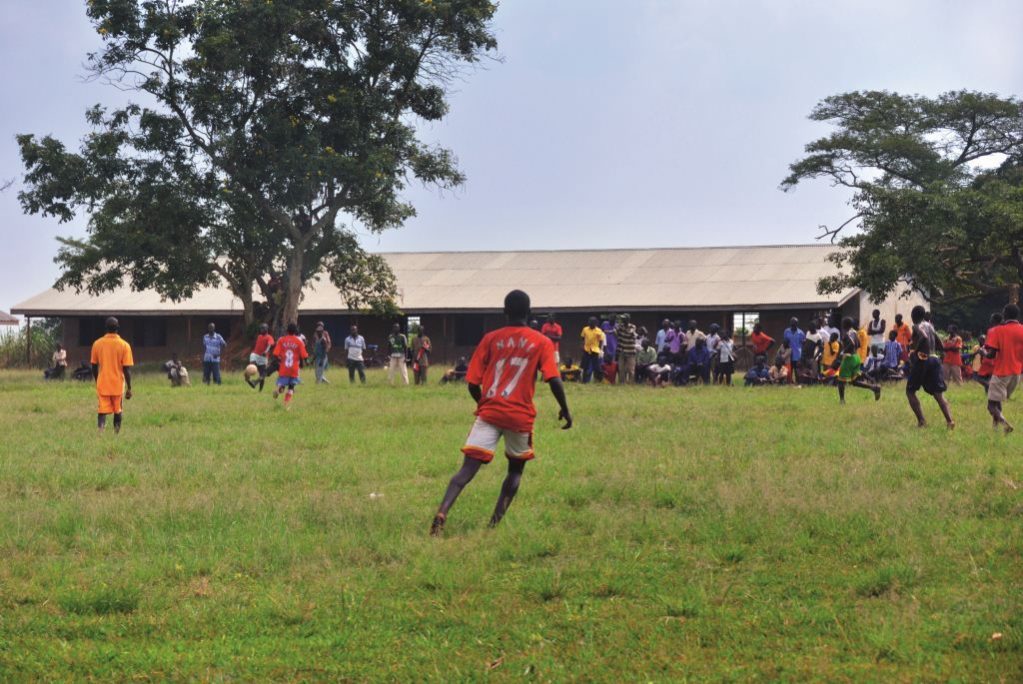When Majida Nantanda – the coach of the Ugandan national women’s football team – was growing up, her four brothers treated her as an equal in their matches. She thought that was the way it was supposed to be.
When she went to school, she realized girls were not expected to run around kicking a ball. Nantanda’s opportunities to play the game were far fewer than those of her brothers. She knew that was not the way it was supposed to be.
Nantanda defied the odds, endured the jeers and forged a career in sport. Her determination and talent saw her play for the Ugandan national women’s football team for nine years. When she was done, she turned her attention to coaching and football development, with a twist.

In 2009, Nantanda joined Tackle Africa, an organization that uses football for HIV/AIDS awareness among the youth. Her rationale was simple: “I committed to developing a grassroots football program to empower more girls and women in sports. But I also use football to address issues like health and education. Considering that football is by far the most popular sport in Uganda, if more coaches can be trained on how to provide HIV/AIDS education, it will have an important impact among the youth,” says Nantanda.
Loading...
Nantanda offers something slightly different than her male counterparts, because she targets women’s education.
“For girls, it is about knowing their own rights, how to stand up for them and taking ownership of their bodies, something they learn through female coaches. Our female coaches teach girls to be strong, to speak up and make decisions. They work on empowering women to have free choice, particularly around their sex lives in an often male-dominated society,” says Tom Colborne, head of business development at Tackle Africa.
She is also a role model for young boys, who do not have the opportunity to meet many women in elevated positions within their societies. The female coaches are seen as figures of knowledge, confidence and authority, according to Colborne.
But it is not as simple as it sounds.
“I had many challenges in bringing a group of boys together to play organized football, and at the same time talk about an HIV topic related to the drill. Some parents discouraged their children when they heard I am speaking about condoms, but I did not lose hope. I explained to the parents, what, why and how football and life skills link together,” says Evelyn Achieng, a Tackle Africa coach in Kenya.
“I love the drills, we do them once a week. After we learn it, we practice and play it over and over until we remember it. Some drills show exactly what is happening in our bodies, so it is fun, but it is also important to learn. These games have really helped in my education. I am active, I listen and I concentrate. Here we all know each other and we help each other learn about discipline, HIV, life and making friends,” says Juma Christine, a beneficiary of Tackle Africa’s Kenyan project when he was younger.
Tackle Africa has 8,000 girls on their books, and 200 female coaches working in six countries across southern and East Africa. It is also working with the Tanzanian sports ministry to train 120 female coaches. Juliana Mokiwa is one of them and has already seen the dividends of her work pay off both in her personal life and in football.
“In Africa it is true that many women have no say with their husbands. Now, I have the knowledge about how I can make decisions. I have also learned different skills about football, which I will teach other coaches and players,” she says.

Tackle Africa has seen the confidence and ability of female players grow, however footballing infrastructure remains a challenge, admits Colborne.
“There’s still a long way to go before there’s a women’s professional game in any of the countries we work in. Even the top division male players are rarely able to earn a decent living through the game. But, we see women’s national teams beginning to spring up and there are numerous organizations running women’s leagues,” he says.
Despite all that, Tackle Africa is not looking to unearth the next Nantanda, instead it is hoping to keep young people playing football, so they can reap the benefits associated with the program.
“We help female coaches to be better at coaching, so that they can develop players – not because we care about making better footballers, but because we know in order for our sessions to work, the coach must be credible [and only then will it have] young people coming back. With good female coaches, they can ensure girls attend their sessions as regularly as boys, and learn as much about football as they do about life.”
Loading...
